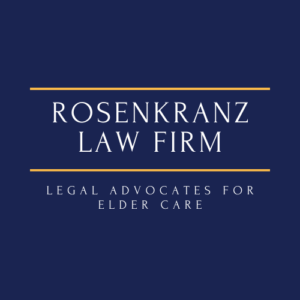Medicaid will pay nursing home expenses to those who qualify. To qualify, income eligibility and resource eligibility must be established. For income, the applicant cannot earn more than $2,205 per month. With respect to assets, a married applicant and his or her spouse are allowed to keep a home, personal effects, a car or two, and other assets, up to $120,900. Eligibility on benefit rules changes often, at least twice each year. Be sure to check with our office before making any decisions or plans based on these numbers.
On February 8, 2006, the value of a single person’s homestead becomes relevant to the eligibility process. Single applicants may not have home equity greater than $500,000. The home equity cap does not apply to a married applicant with a community spouse residing in the homestead property. Exceptions may exist and other planning tools may make this less of a concern.
In the past, part of thoughtful planning involved divesting assets. But property transfers, including transfers to trusts, are examined closely, and frequently the transferred property is still considered part of the assets for determining eligibility.
On February 8, 2006, the federal government expanded the time frame for examination of any gifts of property that are made prior to the Medicaid application from thirty-six months to sixty months. Florida implemented the federal law changes effective November 2007.
As a result of this change, gifting has become more complex. The assistance of an elder law attorney can help you sort through the complexity of the law changes based on the individual facts of your case.
Accessing Medicaid benefits has become somewhat controversial. Many individuals are concerned that they will not receive the same level of care at a facility that accepts Medicaid as they would if they were private pay patients. The reality is that Medicaid pays for over seventy percent of the patients in nursing home facilities. These same patients are mixed into the same facilities with private–pay patients. This is like two passengers seated side-by-side on an airline, one might have paid $250 for a ticket, the other $1000. Which one would you rather be? Employing strategies to protect your assets is a legitimate way to protect you and your spouse’s financial future.
Even if you are in an assisted living facility or remain at home for your care, you may be eligible for Medicaid benefits under the Medicaid Nursing Home Diversion Program. The same standards that govern Medicaid eligibility, in a nursing home, govern the Diversion Program. The goal behind the Program is to keep patients in the community for as long as possible. Under the eligibility criteria for the Program, you must be 65 or older, reside in a project area, (which includes Hillsborough, Pinellas, Pasco, Manatee, and Sarasota counties), meet Parts A&B Medicare standards, and meet Medicaid eligibility as defined under the Institutional Care Program, the Medicaid program that covers nursing home care.
Eligible services include adult companions; adult daycare and health care; chore, homemaker, and personal care services; and prescription drugs. As with most government benefits, it is a useful program that can be a bit difficult to understand without advice from a knowledgeable expert.
Finally, if you have been discharged recently from a hospital and your care is being paid by Medicare, this is an optimal time to consult with our office to maximize your benefits.

